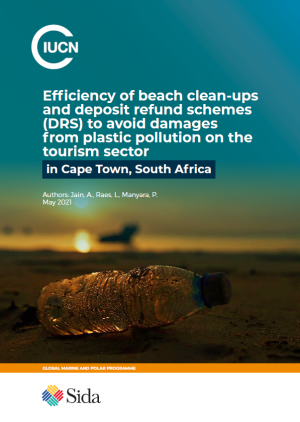
HowHowever, a rapidly growing economy, touristic pressures, and waste streams associated with development and population growth pose an increasing threat to Cape Town’s valuable beaches by increasing the number of pollutants and litter on the coastline (Newman, 2019). Plastic accounts for 94-98% of all the litter on Cape Town beaches (Takunda, 2019). Continued degradation of beaches could significantly impact Cape Town’s economy. According to a study on Cape Town, foreign tourists stated that a drop in cleanliness standards could influence the choice of beaches frequented; up to 97% of tourists would not be willing to come to beaches with more than ten large items of debris per metre. This reduced expenditure on travel to beaches would correspond to a considerable decrease in the total recreational value of beaches and a reduction in the regional economy (Ballance, 1996).ever, a rapidly growing economy, touristic pressures, and waste streams associated with development and population growth pose an increasing threat to Cape Town’s valuable beaches by increasing the number of pollutants and litter on the coastline (Newman, 2019). Plastic accounts for 94-98% of all the litter on Cape Town beaches (Takunda, 2019). Continued degradation of beaches could significantly impact Cape Town’s economy. According to a study on Cape Town, foreign tourists stated that a drop in cleanliness standards could influence the choice of beaches frequented; up to 97% of tourists would not be willing to come to beaches with more than ten large items of debris per metre. This reduced expenditure on travel to beaches would correspond to a considerable decrease in the total recreational value of beaches and a reduction in the regional economy (Ballance, 1996).
To target this problem, Cape Town has implemented a variety of beach clean-up
programs, organised at three different levels. First are those organised by the government, which comprise a majority (90%) of all clean-ups. The Department of Environment, Forestry and Fisheries (DEEF) of South Africa has launched various projects to ensure a clean South African coastline, such as ‘Work for the Coast (WFTC)’ and ‘International Coastal Clean-up (ICC)’. Second, the City of Cape Town Metropolitan Municipality also takes care of regular cleaning of the coastline and residential areas through its waste management department. Third, select NGOs are engaged in beach cleaning through their own or sponsors’ funding. In addition, a few other local NGOs and individual volunteers are also engaged in conducting clean-ups.